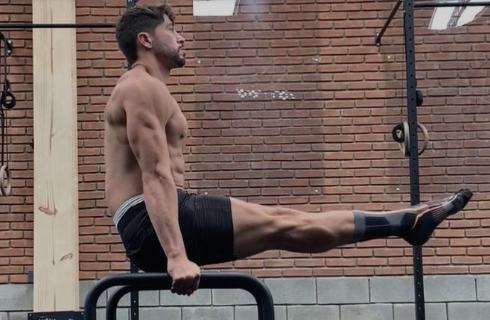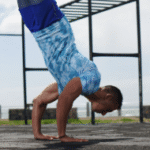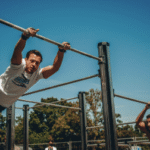Rest, Recovery, and Overtraining in Personalized Calisthenics
- Defining the Core Concepts: Rest, Recovery, and Overtraining
Rest: This refers to the passive cessation of physical activity. It includes time spent not exercising, such as sleep, relaxing, or engaging in very light, non-strenuous activities.
Recovery: This is the active process of physical and physiological adaptation that occurs during rest periods. It involves repairing muscle tissue, replenishing energy stores, rebalancing hormones, strengthening the nervous system, and reducing inflammation. Recovery is where your body actually gets stronger and more skilled.
Overtraining: This is a detrimental state that occurs when the body is subjected to excessive training stress without adequate rest and recovery. It’s characterized by chronic fatigue, declining performance, and physiological and psychological distress, often leading to a breakdown in physical and mental health.
- The Critical Importance of Rest & Recovery in Personalized Calisthenics
For calisthenics, adequate rest and meticulous recovery are as vital as the training sessions themselves. Here’s why:
Muscle Repair, Adaptation, and Growth (Hypertrophy): Muscle fibers experience microscopic tears during intense workouts. It is during the rest and recovery periods that your body repairs these tears and rebuilds the muscle fibers stronger and larger (supercompensation). Without sufficient rest, this repair process is compromised, leading to stagnation or even muscle loss.
Neurological Adaptation and Skill Mastery: Calisthenics is highly neurological, involving complex motor patterns. The Central Nervous System (CNS) is heavily taxed during skill acquisition (e.g., handstands, planche progressions, muscle-ups). Adequate rest allows the CNS to recover, consolidate learned movements, and prepare for subsequent high-demand neurological work. A fatigued CNS leads to poor form, inefficient movement, and increased injury risk.
Injury Prevention: Chronically fatigued muscles, tendons, and ligaments are far more susceptible to strains, sprains, and overuse injuries. Tendonitis (e.g., in elbows, wrists, shoulders – common calisthenics hot spots) often stems from inadequate recovery. Planned rest allows connective tissues to rebuild and adapt.
Hormonal Balance: Intense training elevates stress hormones (like cortisol). While acute increases are beneficial, chronic elevation due to overtraining can disrupt hormonal balance, leading to muscle breakdown, fat gain, reduced immunity, and impaired recovery. Rest helps regulate these hormones.
Energy Restoration: Glycogen stores (your body’s primary fuel source for high-intensity exercise) are depleted during workouts. Rest and proper nutrition are essential to replenish these stores, ensuring you have sufficient energy for subsequent training sessions.
Mental and Psychological Well-being: Overtraining leads to mental fatigue, irritability, lack of motivation, and burnout. Adequate rest supports mental clarity, focus, and a positive mindset, ensuring training remains enjoyable and sustainable.
Immune System Support: Intense training can temporarily suppress the immune system. Without proper recovery, this suppression can become chronic, making you more susceptible to illnesses and infections.
- The Role of Personalized Calisthenics in Managing Rest & Recovery
This is where a private calisthenics coach in Houston provides immense value:
Individualized Programming: A private coach designs your training volume, intensity, frequency, and exercise selection not just based on your goals, but crucially, on your unique recovery capacity. They consider your sleep quality, stress levels, nutrition habits, and previous injuries.
Dynamic Adjustments: Unlike static app programs, a coach makes real-time adaptations based on your daily feedback and performance. If you report poor sleep or high work stress in Houston, they can modify the session intensity or volume to prevent overreaching.
Client Education: A good coach educates you on why rest and recovery are vital. They teach you to listen to your body’s signals, differentiate between muscle fatigue and pain, and understand the signs of potential overtraining.
Integrating Active Recovery: Coaches prescribe specific low-intensity activities on rest days, such as light cardio (walking in Memorial Park), foam rolling, gentle stretching, or mobility drills, to enhance blood flow and aid recovery without adding significant stress.
Nutrition Guidance: While not RDNs, coaches provide essential guidance on macro/micronutrient intake, hydration (especially crucial in Houston’s climate), and meal timing to support muscle repair and energy replenishment. (Referral to an RDN is made for complex cases).
Sleep Monitoring: Coaches will emphasize the importance of 7-9 hours of quality sleep per night and discuss strategies to improve sleep hygiene.
Stress Management: Recognizing that external life stressors (e.g., demanding work, family responsibilities) impact physiological recovery, a coach may discuss strategies to manage overall stress load.
Scheduled Deload Weeks: A fundamental aspect of periodization. The coach strategically programs periods of reduced volume and/or intensity (e.g., every 4-6 weeks) to allow for complete physical and neurological recovery, preventing plateaus and ensuring supercompensation.
- Understanding Overtraining in Calisthenics
Overtraining is a serious condition that can derail your progress and health. It’s often seen in highly motivated individuals who push too hard too often without adequate rest.
Symptoms of Overtraining (Physical & Psychological):
Physical: Persistent fatigue (even after rest), prolonged muscle soreness (DOMS), declining performance (unable to hit usual reps/sets/skills), increased resting heart rate, frequent illness/infections, sleep disturbances (insomnia despite fatigue), loss of appetite, persistent joint pain or nagging injuries.
Psychological: Irritability, mood swings, lack of motivation, anxiety, depression, difficulty concentrating, feeling “burnt out” on training.
Causes of Overtraining:
Excessive training volume and/or intensity without proper recovery.
Insufficient sleep.
Poor nutrition/inadequate caloric intake.
High levels of external life stress.
Lack of variety in training, leading to repetitive strain.
Consequences: Stalled progress, increased risk of injury, weakened immune system, hormonal imbalances, and psychological burnout leading to abandonment of fitness goals.
- Managing Overtraining in a Personalized Calisthenics Setting
Coach’s Vigilance: A private coach is trained to recognize the early warning signs of overtraining, both from performance metrics and client feedback.
Open Communication: The most vital tool. Clients are encouraged to be honest about how they feel, not just how they perform.
Immediate Action: If overtraining is suspected, the coach will immediately implement a significant deload, prescribe complete rest days, or drastically modify the program’s intensity and volume.
Preventive Measures: Periodization is the ultimate tool for preventing overtraining. By systematically varying training load and incorporating planned recovery phases, the coach proactively manages stress.
In the Houston Context:
Houston’s demanding professional environment and diverse recreational opportunities mean many individuals push hard, both at work and in the gym. This makes understanding and prioritizing rest, recovery, and preventing overtraining particularly relevant. A private calisthenics coach in Houston provides the expert guidance to balance a rigorous training schedule with a busy lifestyle, ensuring that the pursuit of strength and skill mastery remains a source of vitality, not exhaustion.
In conclusion, for sustainable, long-term calisthenics success in Houston, rest and recovery are non-negotiable partners to your training. A personalized calisthenics coach meticulously manages these elements, proactively preventing overtraining and ensuring that your body and mind are always optimally prepared to adapt, perform, and achieve your impressive bodyweight goals.

Rest, Recovery, and Overtraining in Personalized Calisthenics
Route
Calisthenics Gym Houston Functional Bodyweight Training
Secondary phone: (346) 483-3195
Email: info@calisthenicsclubhouston.com
URL: https://calisthenicsclubhouston.com/
Monday 6:00 AM - 7:00 PM Open now Tuesday 6:00 AM - 7:00 PM Wednesday 6:00 AM - 7:00 PM Thursday 6:00 AM - 7:00 PM Friday 12:00 PM - 6:30 PM Saturday 9:45 AM - 12:00 PM Sunday 3:00 PM - 5:00 PM






